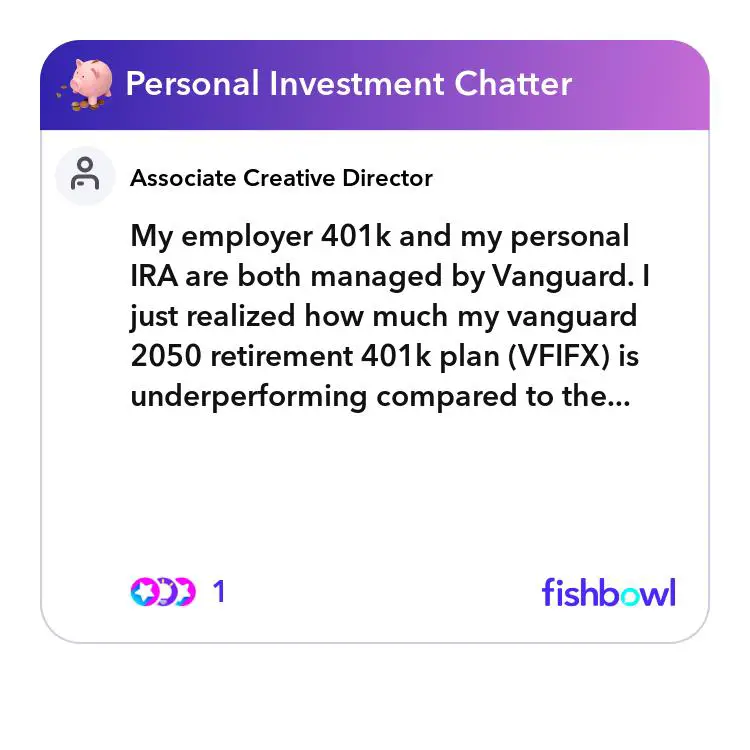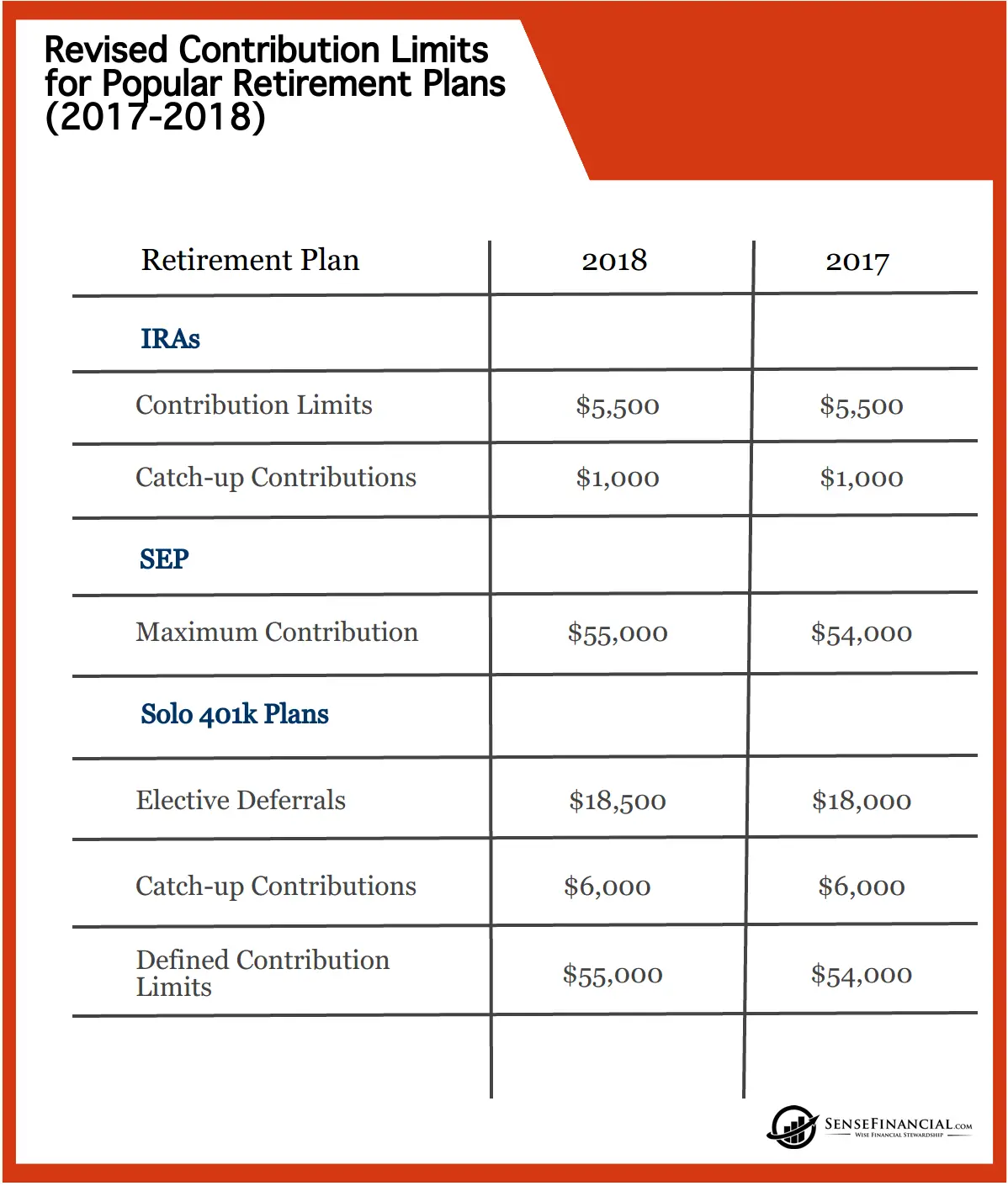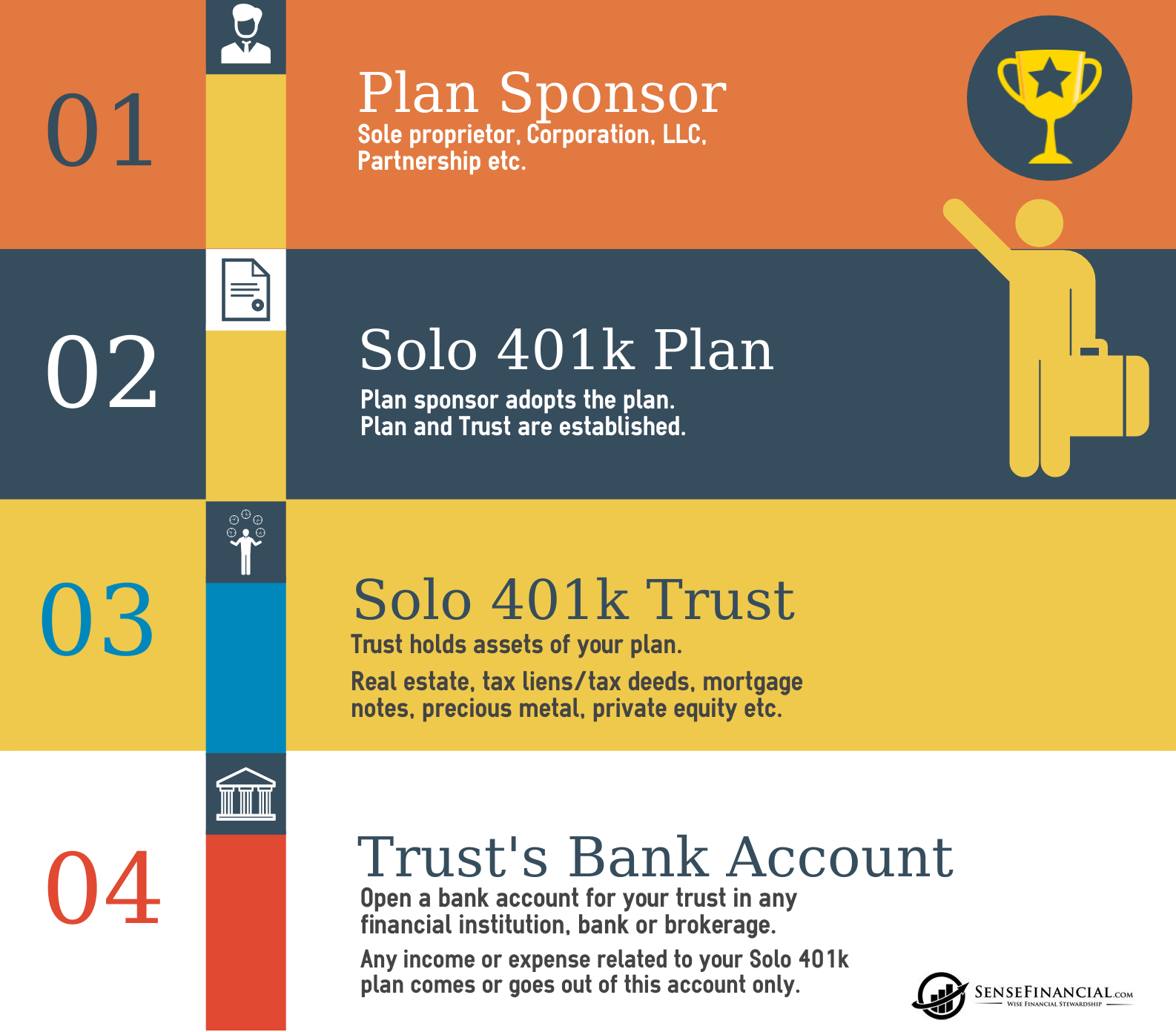When To Roll Over Your 401 To An Ira
Rolling over your 401 to an IRA is possible only if you’re leaving your current employer or your employer is discontinuing your 401 plan. It is an alternative to:
- Leave your money invested in your existing 401
- Rollover to your new employer’s 401
- Withdrawal from your 401, which would trigger a 10% penalty if you aren’t 59 1/2 or older
A rollover or IRA) does not have tax consequences. This would not be the case if you do a rollover to a Roth IRA.
Rolling over a 401 to an IRA provides you with the opportunity to choose which brokerage you want to hold your retirement funds. It may be the right choice if:
- Your new employer doesn’t offer a 401 plan
- You cannot keep your money invested in your current workplace plan because your plan is being discontinued or your 401 administration won’t allow you to stay invested for some other reason
- Your new employer’s 401 plan charges high fees, offers limited investments, or has other drawbacks
- You’d prefer a wider choice of investment options
However, there are some downsides to consider:
- While 401 loans allow you to borrow against your retirement funds, no such option exists with an IRA.
- Transferring company stock can be complicated account, read up on an “NUA strategy” that could save you a lot of money.)
If these downsides aren’t deal breakers for you, the next step is figuring out how to roll over your 401 to an IRA.
You May Be Able To Leave Your Account With Your Former Employer At Least Temporarily
Changing jobs is stressful, even in the best of circumstances. If youve lost a job and are scrambling for re-employment, youre likely focused on that. But eventually you will need to figure out what to do with your 401.
If your balance is $5,000 or more, you can leave the money right where it is, giving you time to decide the best course of action for you. In this case, youre under no obligation to move your money.
What you should do right away, regardless of the 401 balance in your old plan, and as early as your first day at the new job, is to sign up for your new companys 401 plan. Even if your new employer has an automatic opt-in feature that does not kick in for one to three months and if you rely on that, rather than taking the initiative you can miss 30 to 90 days of contributions and matching funds, Bogosian advises.
After six months, youve got a handle on the job, know youre going to stay and have some experience with your new plan. Youre now in a better position to compare your last 401 plan with this new one, including the diversity of the investments and the costs.
But what happens if the balance in your old 401 is less than $5,000? Your former employer may force you out of the plan by placing your funds in an IRA in your name or cashing you out and sending you a check.
Should You Rollover A 401 Or 403
Rolling over your 401 or 403 to a low-fee IRA is a smart financial decision for most millennials.
You can get both low fees and a lot of variety.
Reasons people do nothing can range from my current 401 is performing well to I want to look at the returns before I make a decision.
If you decide now to roll over your 401 every time you switch jobs, you wont have to make this decision each time you change employers.
Don’t Miss: How To Offer Employees 401k
Rollovers Of Retirement Plan And Ira Distributions
Information on this page may be affected by coronavirus relief for retirement plans and IRAs.
Most pre-retirement payments you receive from a retirement plan or IRA can be rolled over by depositing the payment in another retirement plan or IRA within 60 days. You can also have your financial institution or plan directly transfer the payment to another plan or IRA.
The Rollover ChartPDF summarizes allowable rollover transactions.
Also Check: Can You Take Money From Your 401k
Rolling Over A : What Are Your Options

Lets say youre starting a new job and youre wondering what to do with the money in a 401 you had at an old job. You have four options:
- Option 1: Cash out your 401.
- Option 2: Do nothing and leave the money in your old 401.
- Option 3: Roll over the money into your new employers plan.
- Option 4: Roll over the funds into an IRA.
Well walk you through the pros and cons of each one:
Recommended Reading: Who Can Contribute To A 401k
How A Roth Ira Conversion Can Leverage Currently Low Tax Rates
One of the potentially overlooked silver linings of the past years economic challenges is a favorable income tax environment created by the 2017 Tax Cuts and Jobs Act. If youre considering a Roth IRA conversion1 from your 401, youll be paying some of the lowest tax rates in history on those converted assets and doing it all at one time. However, if you went with a traditional IRA rollover, you may pay higher taxes in retirement on your RMDs.
If youve lost your job, or your income level drops, you can convert your 401 assets at your new, lower, tax bracket. Say, for example, you convert your 401 assets to a Roth IRA, you may be paying taxes at a reduced rate right off the bat, explains Markwell. And if taxes rise between now and your retirement target date, at which time youd otherwise take distributions, you will have further benefited tax-wise from that earlier conversion.
Keep in mind that establishing an IRA with efficient growth goals may call for more active management on your part, depending on your retirement goals. A financial professional can help tailor your investments to your individual strategy and also help you revisit and refine that plan as needed.
You Might Be Missing Out On Better Investments
401 accounts grow at different rates depending on which assets you invest in. If the retirement savings plan at your new companyor an individual retirement plan offers a selection of stocks and bonds that better aligns with your financial goals, it might be time to initiate a rollover.
The money thats sitting in your old 401 could potentially grow at a faster rate if you roll it over into a new plan or into an IRAits certainly worth investigating the growth rates of each. Keep in mind that investors can lose money when investing, too, so it always makes sense to consider your personal risk tolerance when deciding how to invest your retirement accounts.
Don’t Miss: Can You Leave Your 401k At Your Old Job
There Are A Lot Of Reasons Why Rolling A 401 Over Into Your Own Ira Is The Best Choice For Most People But For Some There Are A Couple Of Cons That Could Outweigh The Pros
2015 A Dogs Life Photography 2015 A Dogs Life Photography –
Most of us have worked for a company that offered 401 plans to their employees. In fact, you and I have likely worked for multiple companies that provide this benefit. And as a result, you might have a number of 401 plans to your name if you opened an account with each employer.
Thats not necessarily a bad thing. After all, most people should always use a 401 if their employer offers one even if the employer doesnt match. 401s are powerful tax-advantaged accounts that you should take advantage of, whether or not your company chips in, too.
So lets say youve been diligently pumping money into your 401 at every company that offered one. But then you changed jobs. You started a new 401 at that new company and then got busy and left the old accounts behind . What happens to all those old accounts? Should you do anything about them?
Maybe. Its important to understand what you can do with old 401s from previous employers and then know the right choice to make for managing those accounts. Heres what you should know.
Get Help With Your 401 Rollover
Having an investment professional in your corner, someone who can help you find the right investments to add to your portfolio and walk you through all the ins and outs of a 401 rollover, makes this process a lot easier.
Dont have an investment professional? No worries! Our SmartVestor program can get you in touch with someone in your area to help you get started.
Read Also: How Much Should I Save In 401k
You Enjoy More Tax Advantages With An Ira If You Care About Charitable Giving
The new tax code makes charitable giving less tax advantageous for many donors. However, if you are over 70½, you can give to charity tax-free from your IRA via a qualified charitable distribution . Employer plans dont allow QCDs. Starting to consolidate everything into IRAs today allows you to take advantage of QCDs in the future.
Keeping Your 401 With A Former Employer
If your ex-employer allows it, you can leave your 401 money where it is. Reasons to do this include good investment options and reasonable fees with your former employers plan. Keep in mind that you may not be able to ask the plan administrator any questions, you may pay higher 401 fees as an ex-employee, and you cant make additional contributions.
Another noteworthy thing to consider is that your former employer could decide to move your old 401 account to another provider. If your balance is between $1,000 and $5,000 and your former employer wants to close your old 401 account, your former employer can, but it is required to transfer the balance to an IRA in your name and notify you in writing. For balances under $1,000, your former employer can send you a check, which you’d need to put in a retirement account within 60 days to avoid taxes and penalties.
You May Like: How Can I Access My 401k Money
You May Be Able To Invest In Funds With Lower Fees
As a general rule, IRAs tend to be cheaper than 401s. You have more flexibility to find investments with lower fees when you invest with an IRA because its your account that you hold at an institution you choose. Your 401s leave you stuck with what your employer gives you within the plan. Its not out of the question to save 1% per year in underlying fees when you roll over to an IRA.
Option : Do Nothing And Leave The Money In Your Old 401

Now, you could just leave the money in your old 401 if youre really happy with your investments and the fees are low.
But thats rarely the case. Most of the time, leaving your money in an old 401 means youll have to deal with higher fees that cut into your investment growth and settle for the limited investment options from your old plan. Most people come out way ahead by doing a direct transfer rollover to an IRA .
Read Also: How Much Can I Rollover From 401k To Roth Ira
Ryan Fuchs Financial Planner
@RyanFuchs06/15/15 This answer was first published on 06/15/15. For the most current information about a financial product, you should always check and confirm accuracy with the offering financial institution. Editorial and user-generated content is not provided, reviewed or endorsed by any company.
When Not To Roll Over Your Retirement Account
There can be good reasons to NOT roll over an old 401 or 403 to an IRA. For tax reasons, its generally not a good idea to roll over company stock that has appreciated in value.
Second, if youre afraid of bankruptcy or are planning to retire early, leveraging your employers 401 or 403 provides additional protection from creditors and could allow you to take out funds before age 59 ½ without penalty.
Finally, while this is not a reason to avoid a rollover to an IRA, its important to note that many financial professionals will get a commission if you use them to roll your dollars to an IRA, but not if you roll your dollars to your new 401.
You May Like: How Do I Find My Old 401k Account
You May Like: Can I Withdraw My 401k If I Quit My Job
Downsides To Rolling Over To A New 401
- Potentially different rules:Your new employer will have control over the new plan and can change aspects of it, such as fees and the plan administrator.
- Possibility of higher fees:Higher fees can cut into your earnings. Be sure to check out the fee structure before opting to roll over into the new plan.
- Loss of investment options:The number of investment options in 401 plans have declined in recent years. This means that other retirement plans like IRAs could offer a wider range of investments that you can use to diversify. A new 401 plan may not offer the same investment choices as your original plan.
You Dont Have To Leave Your 401 Behind When Changing Jobs
Employers offer 401 plans, with their tax advantages, as a benefit to attract and retain talent. Increasingly, however, Americans with 401s are not working with one company for their entire career. Today, people generally stay at a company for about 4.1 years, according to the U.S. Bureau of Labor Statistics.
Employees who change jobs can roll over their 401 from their previous employer to their new employer with a direct trustee-to-trustee transfer. But they must make the rollover within 60 days and abide by other rules for this process. This strategy has advantages and potential downsides to consider.
You May Like: How To Transfer 401k Balance To New Employer
Option : Roll Over The Funds Into An Ira
Most of the time, transferring the money from your old 401 into an IRA is your best option. Thats because an IRA gives you the most control over your investments.
You see, an IRA gives you potentially thousands of mutual funds to choose from. You can pick from the best of the best instead of just a few so-so options. You can work with an investment professional who can walk you through the rollover and help you manage your investments for the long haulno matter where your career takes you.
How Much Of Your 401 Do You Get When You Leave An Employer
You are entitled to 100 percent of any contributions youve made into the 401 plan, but how much of an employer match youre entitled to is based on how the plan is set up and the vesting period. A vesting schedule is based on the length of time required to have ownership in the employers contributions. If you are 100 percent vested in employer contributions, you will receive all of the money the company has contributed on your behalf.
If you have not been with the company for the required amount of time, you may receive a percentage of employer contributions, based on the plans vesting schedule. The rest of the money set aside for you is forfeited back to the company. Most 401 providers delineate how much of your balance is fully vested. If youre not sure, you can always call to inquire.
Also Check: How To Borrow Money From My 401k
Indirect Rollover Vs Direct Rollover
There are two methods you can use to roll over an old 401 into a new one: an indirect rollover or a direct rollover.
A direct rollover is when the money in your old account is directly transmitted to your new account without you ever touching the funds. To do this, you can reach out to the plan administrator and ask them to transfer the funds to another retirement plan without any taxes being withheld.
An indirect rollover occurs when you receive a check in your name covering the full amount of your previous 401. When you receive that check, you have 60 days to deposit the funds into a new retirement plan, whether thats a new 401 or a different retirement plan altogether. Financial institutions typically withhold around 20% in taxes. When you make your deposit, you must make sure to include that 20% otherwise, it could be considered an early distribution and you could face penalties.
Pros And Cons Of Rolling Over 401s To A New Employer

Knowing the pros and cons of rolling over 401s to a new employer can help you decide whether or not to rollover. Find out the pros and cons of a rolling over 401.
One of the questions that arise when you quit or leave your job is what to do with your old retirement plan. Some of the options you have may include leaving the retirement savings with your soon-to-be former employer, cashing out, or rolling over the 401 to a new employerâs plan or IRA.
Knowing the benefits and drawbacks of each option you have can help you avoid making costly blunders that could take a huge chunk of your retirement money. If you are considering rolling over the 401 to your new employerâs 401, there are certain pros and cons of rolling over to a new employer that you should know.
The pros of rolling over 401 to a new employerâs 401 include ease of management, employerâs match, tax savings, and early retirement options. The cons include higher fees, limited control, limited investment options, and potential tax implications.
Don’t Miss: How Do I Find My Old 401k Account